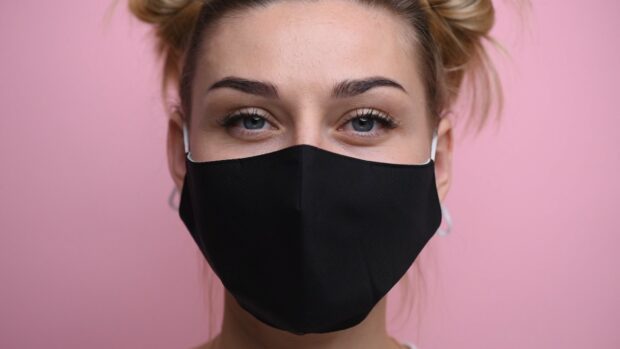Face masks have become an essential part of our everyday lives, helping protect ourselves and others from Covid-19. However, using a disposable face mask is not the way forward. Having to change your mask daily has resulted in an increase in waste that has had a huge impact on the environment. Opting for a reusable face mask is a much more environment-friendly alternative, and we have compiled a list of some of the advantages for choosing a reusable face mask.

Get multiple uses out of your face mask
Disposable masks, like the light blue surgical ones, are non-recyclable and in high demand in the medical sectors. Therefore, those not in the medical sector should leave these masks to the professionals and opt for a reusable face mask.
If not properly disposed of, surgical masks can cause more harm than good. There is a proper method of disposing of surgical masks, and not many people know of it. Incorrect disposal of surgical masks can lead to contamination and infections, but reusable face masks can help avoid this.
Choosing a face mask that is both reusable and washable will not only be more cost efficient but you can keep reusing it.
Benefit from multi-layered protection
Quite a lot of face masks consist of just one layer, which doesn’t offer you the best protection. WHO recommends masks which consist of three layers, as this offers the best protection from bacteria. Look out for masks which have a polypropylene sms filter middle layer. This acts as a barrier, with better bacteria filtration, whilst also ensuring breathability and comfort.
Lab tested and certified alternatives
If you’re going to be wearing a face mask, then it’s important that this offers you the best protection. Going for a reusable option doesn’t mean you can’t get the highest level of protection.
Look out for masks that have been lab tested, this way you know how well they will protect you. Check for masks which have 95% BFE bacterial filtration efficiency, this indicates if the mask’s material is strong enough to fight off bacteria from entering. Masks like the AirFlex mask have 99% filtration capability. Also, choose masks which are 100% droplet resistant so that droplets from coughs and sneezes will not penetrate the material. A mask with nanotechnology is best for breathability.
Top Tip – avoid masks with Perfluorooctanoic Acid (PFOA) as this contains a plastic coating.
Protective materials and added comfort
Lots of face masks come in a wide range of materials and multiple colour options. But what materials should you be aware of? As mentioned previously with multi-layers, check the inner layer is a cotton fabric, preferably hypoallergenic and/or antibacterial, as this will not only protect your skin but also help avoid mask acne.
Masks with a woven nano outer layer are water, dirt and UV resistant. As mentioned above, the nanotechnology cotton acts as a barrier between you and bacteria.
Look out for masks that have adjustable straps, so you can choose the level of tightness that suits you. This is also best for hygiene reasons, as you can use the straps to take your face mask off easier, without touching the mask itself.
Masks that have a nose bridge not only covers your face, but will also contour to its shape, giving you stronger protection.
Affordable options available
The cost of purchasing disposable face masks is definitely higher than using a reusable face mask, as a reusable mask can be used over 50 times.
Purchasing a face mask doesn’t have to be expensive, you can find face masks that are lab tested, comfortable and sustainable, with brands like Smartcover offering a selection of affordable face masks without compromising on quality and safety.
Help save the environment
Disposable masks are made from single-use plastic, meaning that they must be disposed of after one use. These face masks are often thrown away in open spaces causing harm to both humans and animals. Globally we are using around 129 billion face masks every month which is a lot of waste that’s having a heavy impact on the environment.
Using reusable face masks can be used for a longer period and is also favourable for the environment.



